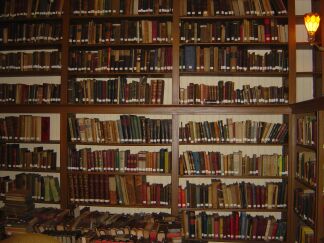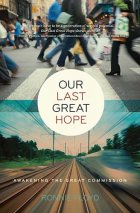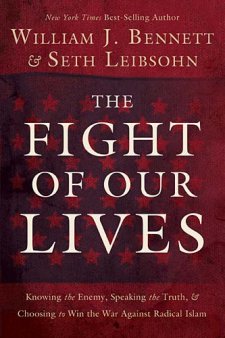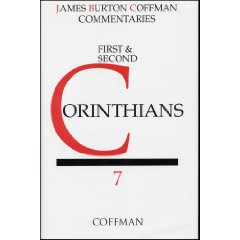
8 Ways to Add to Your Library Without Breaking the Bank
I know this is shocking, but I love books! I love challenging myself by reading books, and I have a goal to read 50 this year. (I’m a little behind the “pace” needed, but I’m trying.)
 Buying books, though, is expensive. And, if you are like me, and love to build a real library, the amount of money you could spend could be overwhelming. Also, without a little self-control, we bibliophiles can harm our family’s budget by just buying and buying and buying some more.
Buying books, though, is expensive. And, if you are like me, and love to build a real library, the amount of money you could spend could be overwhelming. Also, without a little self-control, we bibliophiles can harm our family’s budget by just buying and buying and buying some more.
I want to share some ways you can add books to your library without crippling your financial future to do so. (And, by the way, these same principles could be applied to nearly anything else you might collect.) I know that one tip would be to use electronic book collections, but I am intentionally leaving that one off, so that we can think about “paper” libraries in this article. Here are my 8 tips:
1. Know What You Truly Need and Want. Yes, as a preacher, there are books that are needed. However, as one who likes books, there are also some books you just want. Both are okay, but you need to know which is which. Especially when money is tight, don’t just buy “any and every” book. Have a very specific purpose for every book you buy (upcoming sermon series, Bible class study material, commentary on a book you need to review, etc.).
2. Have a Book Budget. While carrying cash isn’t always helpful in buying books (more about that later), having a budget is necessary. This is doubly true if you and your spouse are both book lovers! You could spend a huge amount of money on books if you don’t stay with the budget.
3. Ask for Books as Gifts. Some people buy books because they think they are boring. But, if you ask them for a book (or books by a certain author), they will buy them. “Free” is a great word when it comes to buying books!
4. Buy Online. While you may not purchase every book online, shopping sites like Amazon.com or eBay (along with others) is a great way to buy new books for a lot less than you will find them for in a store.
5. Buy Used. Don’t be afraid of that used book store that has some dusty books on the shelves. Many do not realize what they have when it comes to religious books, and you can find some great bargains on classic works.
6. Take Advantage of Free Books. You may have seen my reviews of books for two online sites that give new books to bloggers. I get books from both Booksneeze.com and from the Tyndale Blog Review site. Both allow bloggers to get a free book in exchange for a 200+ word review. Not a bad deal!
7. Borrow Books. Yes, you can add books–for a little while–by utilizing libraries or other people who have a book you don’t have. Just remember to do the right thing and return the book!
8. Believe in the “Sowing and Reaping” Principle. Here is what I mean: if you will be generous with the materials God blesses you with, materials will come your way. Preachers give books away. Others have books they would love you to have. But you have to be a giver, first! You have to be willing to share, too.
———————————
Those are some general tips to get you started. What are some of your specific tips to build a library without having to refinance your house?




8 Comments
Mandy
They seem to have a different selection of books every time I look, but I have found some really great deals on betterworldbooks.com. It’s worth a shot anyway.
Claire
As a graduate student, I have found http://www.gettextbooks.com to be an invaluable resource. Go to the web-site and enter the author’s name or book title or ISBN #, then this online search engine searches all the new and used book retailers who do business online(such as Amazon, Betterworld, TextbooksRus, Abebooks, and Alibris). They pull up all available choices for you (with best prices) and provide you links to those online retailers, including individuals who sell their books via Ebay, Half.com, or Amazon Marketplace Sellers. I have saved 75% – 90% on all my theological books — both scholarly and popular level material.
Wesley Walker
I try to stay away from topical books or even commentaries and tend to buy more high-end reference works. I think they are more costly at the beginning, but more useful in the long run.
Westley Hazel
Pick your authors well. There are some popular books that are junk. But if you know someone is always deep, challenging, and practical then buy a lot of their stuff. I am trying out an author right now that I have heard a lot about. I told my wife last night I don’t think I will buy many more of his books. Other guys, I anxiously await books that are coming out soon.
If it is a need, it is reasonable that your congregation might be willing to purchase the book for you. Just like they supply office equipment. Every congregation is probably different in regards to this.
Reference works are good, but I would hate to think of all the inspiration and depth I would have missed without some of the topical books. The really good ones I constantly refer to them in my study over several years.
Read to grow.
Pingback:
Rusty
Here are some of my tips:
1. Set up a wish list on Amazon so people can get you gifts. Manage that site during birthday’s and Christmas. I like to place books I am not sure of on the list during those times so if it bombs I don’t feel bad because it wasn’t my money.
2. Read a chapter of the book at a bookstore or library to see if it is a keeper.
3. Search authors blogs or websites they sometimes will give the book away in a PDF file or as freebies.
4. Publishing house blogs also will give away free books of new releases at times.
5. Kindle versions are cheaper. I still prefer a hold in my hand book but sometimes the Kindle version is half price.
Adam Faughn
Great stuff.
Wesley, I like your suggestions about reference works. I think this is especially true for younger preachers. Often they can get caught up in buying a large NUMBER of books, but don’t have the solid reference materials they need for deep study.
Westly, I couldn’t agree more. I have a few authors that I read a lot from. Some are writers with whom I disgree on some fundamental points (John MacArthur would lead the list), but whose depth and style cause me to think and study more deeply. You are so right that there are a lot of “popular” books that are junk. My feeling is that a lot of them say the same thing over and over.
Rusty, great list of tips. I read in bookstores, too, especially if a book is quite expensive. I would rather spend $30 on one really good book than the same amount on 3 $10 books that aren’t worth having. However, spending $30 on one book is hard to do, so I will often read a few sections in the store ahead of time before dropping that kind of money on one volume.
Heather
When I was in grad school I used http://www.bigwords.com a lot. It compares several online bookstores for the best price and also looks for international versions of books since they are usually cheaper. 🙂